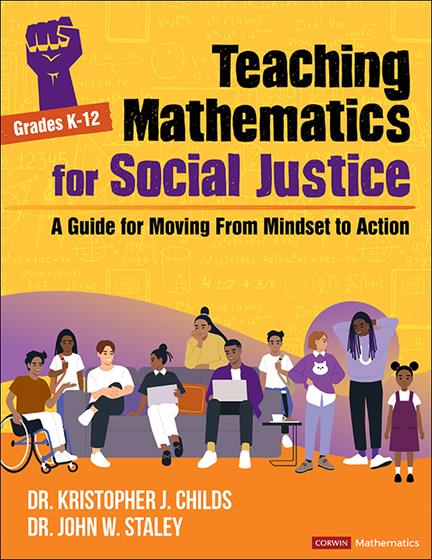
Hands-on, Practical Guidance for Educators
From math,
literacy, equity, multilingual learners, and SEL, to assessment, school counseling,
and education leadership, our books are research-based and authored by experts
on topics most relevant to what educators are facing today.
Teaching Mathematics for Social Justice, Grades K-12
A Guide for Moving From Mindset to Action
This guide will empower teachers to make mathematics learning relevant and useful for students as they use mathematics to understand the world around them, celebrate their unique identities, and become agents of change.
Product Details
- Grade Level: K-12
- ISBN: 9781071846940
- Published By: Corwin
- Series: Corwin Mathematics Series
- Year: 2024
- Page Count: 264
- Publication date: June 14, 2024
Review Copies
Review copies may be requested by individuals planning to purchase 10 or more copies for a team or considering a book for adoption in a higher ed course. To request a review copy, contact sales@corwin.com.



